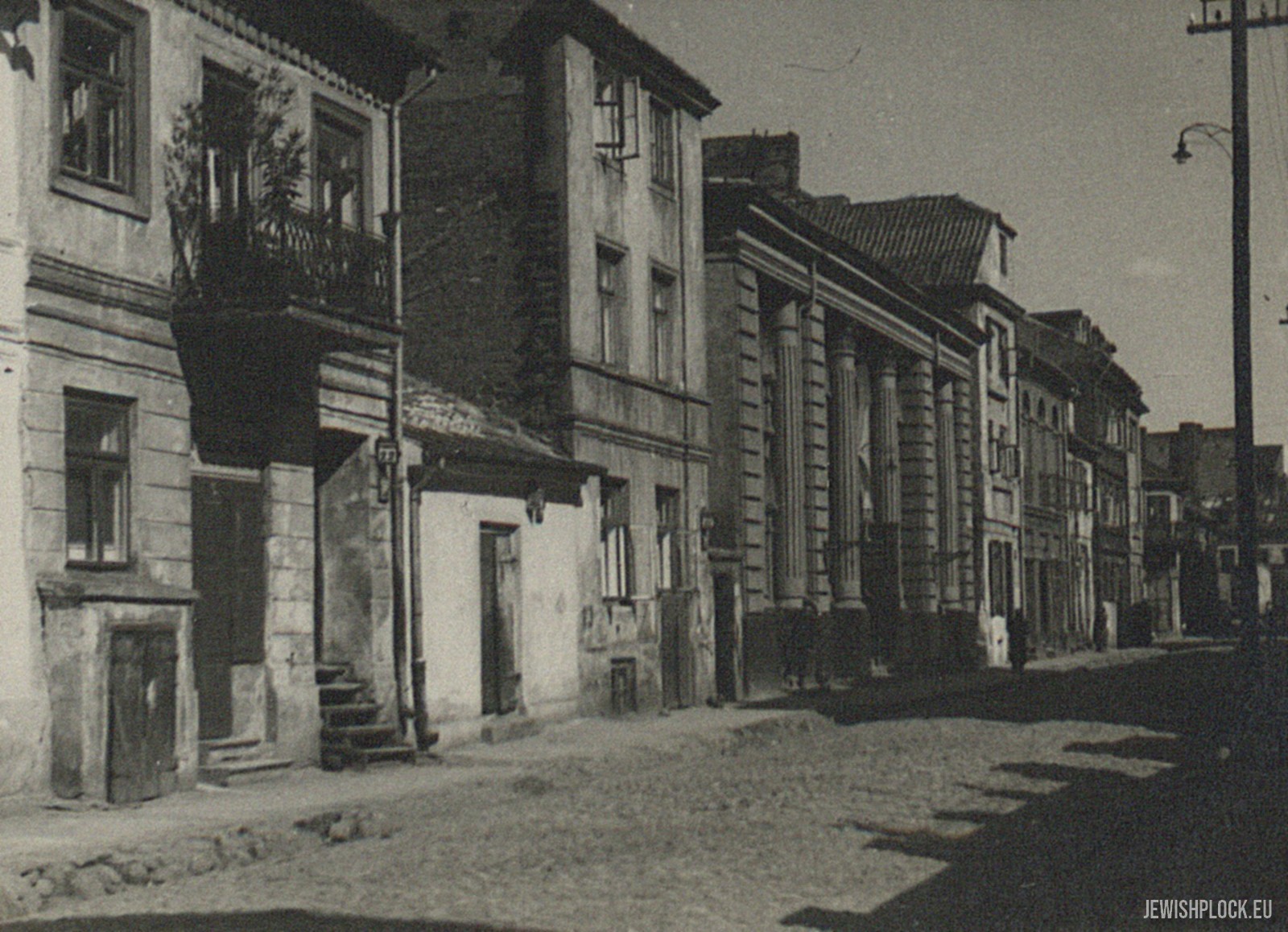Synagogalna Street

Synagogalna Street is one of the streets forming the former Jewish district in Płock. Its name comes from the now-defunct building of the main synagogue located on the square between Synagogalna and Tylna Streets, marked with mortgage number 32 (you can read more about the synagogue here: https://jewishplock.eu/en/the-great-synagogue/). The synagogue was a place of prayer and religious gatherings, there were also ceremonial services on the occasion of the name-day of Ignacy Mościcki, anniversary of the January Uprising or resistance against the invasion of the Bolsheviks. During the occupation, the synagogue was used by the Germans for a car workshop and a bus garage. It was demolished in 1951. At Synagogalna Street before the war, a higher religious school (bet hamidrasz) was located. The building for the synagogue and school was erected by Markus Kazriel Dancygier, who bought the property in 1832. In 1834, he handed the building over to the Jewish commune. In addition to the building, he donated 258 books, including 81 pieces of the Babylonian Talmud, works of Mojżesz Maimonides, Adam Chochmas and two scrolls for the school library. In 1865, at the Synagogalna St. in the home of Dawid Łaski, the Jewish elementary school was opened, headed by Hersz Szejman, and then by Abraham Jakub Papierna. At the end of the 19th century, there were also cheders located at Synagogalna, owned by Matys Gutmacher, Izrael Wolf Kon, Markus Ryża and Szyja Konczewski. Inhabitants of the street traded footwear (Ides Fuks, Lewin Lichtensztajn, Dawid Pokrzywa, Szlama Taub), haberdashery (Szmul Grünbaum), fabrics (Icek Koralczyk, Jojne Horowitz), tobacco products (Szymon Luszyński, Abram Majzner), leather (Mosiek Globus, Józef Szpiro) and flour (Wolf Piechotka). There were two fashion traders on the street – Jakub Kowadło and Chananie Zylberman. According to data from 1926, Jakub Cymbler’s company (colonial goods shop – Synagogalna 6), Izaak Gewircman’s (sale of butter, eggs and fruit – Synagogalna 26), Symcha Kanarek’s (bakery – Synagogalna 22) and Mojżesz Lisser’s (bakery – Synagogalna 16) were all registered there. At the outbreak of World War II, 446 people lived at Synagogalna Street. The street named Niecała was an extension of Synagogalna. In the place of the former buildings of Niecała, today the Square of the Executed 13 is located as well as a monument in honor of Poles, who on September 18, 1942 were hanged by the Nazis.















